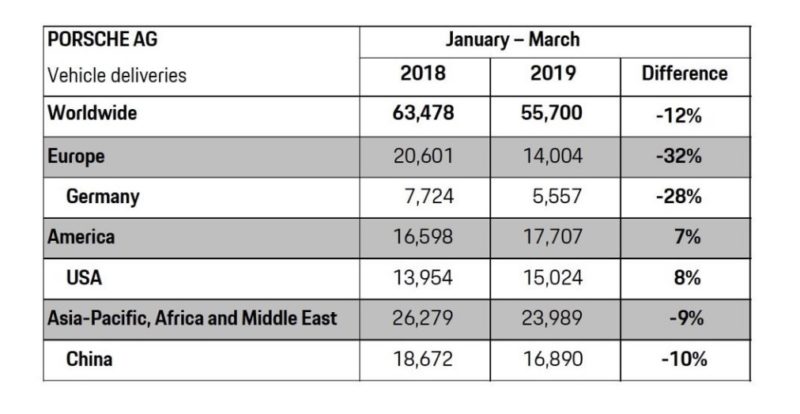
Porsche is already predicting that 2019 will be the company’s first net decrease in sales across the full year in a very long time. While sales were up in North America thanks to booming sales in the US and Canada, every other market Porsche sells in has seen decline over the last year. With the Asian and particularly Chinese economy leaving consumers unsure, and the market largely saturated with new cars over the last few years, Porsche saw a 9% decrease there. Europe took a huge drop for Porsche, down almost 1/3 over the same period last year. Porsche explains this as a changeover to new WLTP test cycles for emissions, and a lack of cars with gasoline particulate filters to meet this new regulation.
Furthermore, the 911 and the Macan—the most iconic model and the most selling model—are both experiencing model cycle ends which have not yet seen the new models fully rolled out to customers yet. Still, even as the old Macan is phased out, of the 55,700 cars Porsche sold in Q1 some 19,795 of them were Porsche’s small SUV. Meanwhile, Porsche’s larger Cayenne has fully rolled out a new generation, and has recorded global growth of 35%. That means Macan and Cayenne sales have accounted for over 68 percent of Porsche’s units moved in Q1.
“In particular the eighth generation of the Porsche 911, which started being delivered in Europe a few days ago, is in high demand from our customers, and allows us to look optimistically toward the future,” says Detlev von Platen.
The new Cayenne Coupe should be to dealers by May, and Porsche’s all-electric Taycan will make its launch in September.
